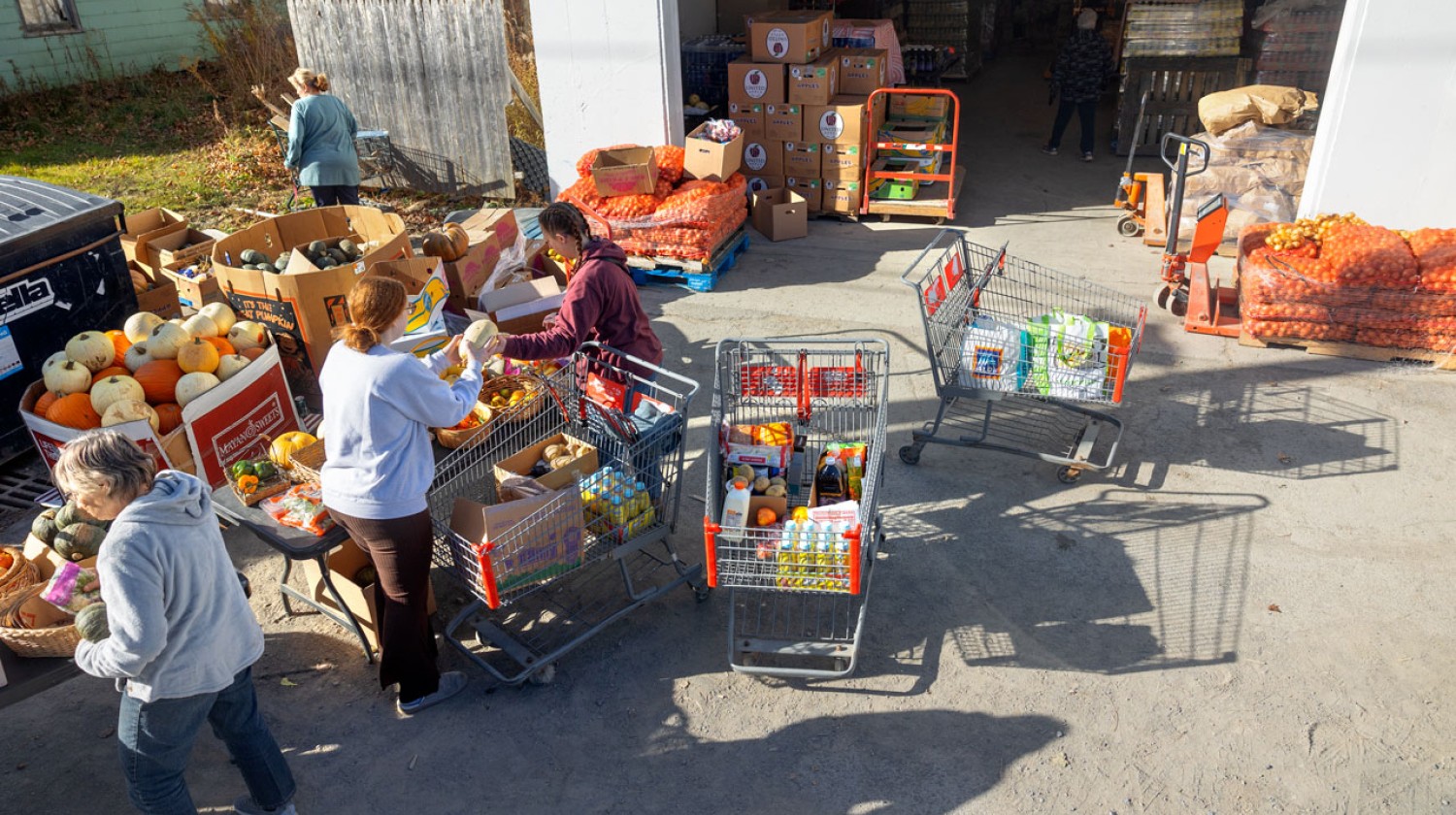
Frost glistened outside as the first of roughly 200 patrons wound through Enfield Food Distribution on a recent Sunday morning, loading shopping carts with fresh produce, canned goods, potatoes and onions, meat, bakery items, bottled water, and for some, a bouquet of flowers.
Occupying a 1948 former fire house on Enfield Main Road, eight miles west of Ithaca, the pantry served as many clients in an entire week just a few years ago. But as the pandemic shuttered other sites, Jean Owens, Enfield’s director, and a team of volunteers began welcoming all comers, taking online orders and packing boxes for drive-through pickup. Demand quickly tripled to 600 customers per week, some lining up two hours before opening on winter days, some traveling as far as 50 miles.
“I had to stop people from coming the night before and camping,” Owens said.
Over the last several years, a team of Cornell faculty and students has been helping Owens meet that growing need – which has been exacerbated by inflation – and advance her vision for the future. Distributing 2 million pounds of food annually now strains the center’s capacity, and its scant parking, proximity to an active fire station and frontage on a road with high-speed traffic create safety concerns. On agricultural land up the road, she hopes to build a new, larger structure that not only distributes food but serves as a community resource hub, empowering guests with gardens, nutrition classes, a kitchen and other programs.
Offering policy, engineering and design expertise, the Cornell team, now supported by a grant from the Einhorn Center for Community Engagement, has helped Owens develop a strategic plan, strengthen governance, register as a nonprofit and apply for grants, and proposed designs for the new facility, including architectural concepts and analyses of how to organize it most efficiently.


